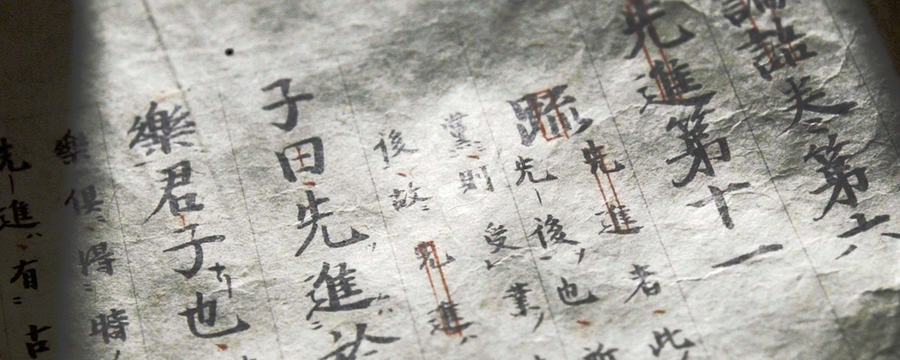Home / History / Social History / Sino-Japanese Interactions Through Rare Books / The role of immigrant printers
This article is from the free online
Sino-Japanese Interactions Through Rare Books


Reach your personal and professional goals
Unlock access to hundreds of expert online courses and degrees from top universities and educators to gain accredited qualifications and professional CV-building certificates.
Join over 18 million learners to launch, switch or build upon your career, all at your own pace, across a wide range of topic areas.


 Fig. 2. Hoshitsushū
Fig. 2. Hoshitsushū
 Fig. 4. Zenrin ruijū, Gozan-ban edition
Fig. 4. Zenrin ruijū, Gozan-ban edition Fig. 5. A carver’s name in the colophon of Toryū sensei bunshu, National Museum of Japanese History [
Fig. 5. A carver’s name in the colophon of Toryū sensei bunshu, National Museum of Japanese History [






